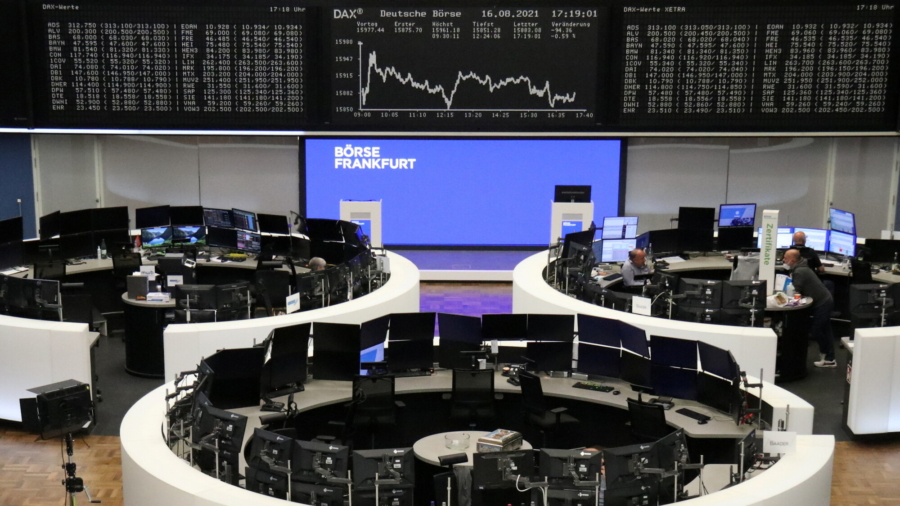WASHINGTON/LONDON—Global share markets stumbled on Tuesday, rattled by disappointing U.S. retail sales data and a surge in COVID-19 infections worldwide driven by the Delta variant.
Wall Street opened sharply lower as investors digested data showing U.S. retail sales fell more than expected in July, after global shares slid amid fears of stricter rules on the internet sector coming out of China.
The Dow Jones Industrial Average fell 0.7 percent in early trading, while the S&P 500 lost 0.53 percent and the Nasdaq Composite dropped 0.65 percent. The MSCI world equity index, which tracks shares in 45 nations, fell 0.68 percent.
The Commerce Department reported that U.S. retail sales fell more than expected in July, falling 1.1 percent as supply chain disruptions weighed on automobile purchases. While a rebound is expected as parents go shopping ahead of a return to in-person school in the fall, there is lingering concern that rising COVID-19 cases could tamper enthusiasm in the world’s largest economy.
“While retail sales didn’t move in the direction we want to see, it was likely somewhat expected,” said Mike Loewengart, managing director of investment strategy at E*TRADE Financial. “Obviously the surge in the Delta variant is causing some short-term angst … the jury is out on how Americans will continue to spend.”
The market consequences of the events in Afghanistan for the developed world were limited so far, Deutsche Bank analysts said in a note.
“Instead, the longer-term risk is that Afghanistan could become a haven for terrorist groups, and such attacks have historically had serious market ramifications of their own,” they said.

Another risk from the events in Afghanistan is that they could complicate U.S. President Joe Biden’s push to pass his economic proposals, alongside the potential for another fight over the debt ceiling in coming weeks, Deutsche Bank said.
Risk aversion among investors was seen in safe-haven gold, which continued its winning streak for a fifth day. Spot gold prices were up 0.26 percent, to $1,791.94 an ounce. U.S. gold futures rose 0.2 percent to $1,793.30.
The yield on benchmark 10-year Treasury notes gained after the weak retail sales data and was at 1.253 percent, after hitting its lowest level since Aug. 5 in earlier trading.
The U.S. dollar was also up, rising 0.34 percent at 92.937.
Investors are focused on when the Federal Reserve will rein in its easy-money policies, with minutes from the central bank’s latest meeting due on Wednesday.
Boston Federal Reserve Bank President Eric Rosengren said on Monday that one more month of strong job gains could satisfy the central bank’s requirements for starting to reduce its monthly asset purchases.
Brent crude was last down 0.19 percent at $69.38 a barrel. U.S. crude was last down 0.46 percent at $66.98 per barrel.
By Pete Schroeder and Tom Arnold

